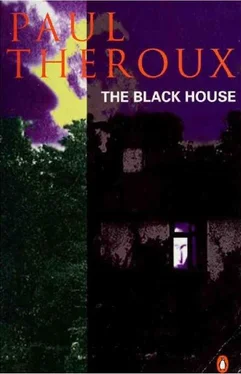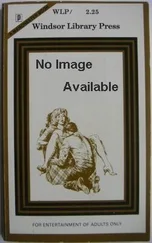Paul Theroux - The Black House
Здесь есть возможность читать онлайн «Paul Theroux - The Black House» весь текст электронной книги совершенно бесплатно (целиком полную версию без сокращений). В некоторых случаях можно слушать аудио, скачать через торрент в формате fb2 и присутствует краткое содержание. Год выпуска: 1996, Издательство: Penguin Books, Жанр: Современная проза, на английском языке. Описание произведения, (предисловие) а так же отзывы посетителей доступны на портале библиотеки ЛибКат.
- Название:The Black House
- Автор:
- Издательство:Penguin Books
- Жанр:
- Год:1996
- ISBN:нет данных
- Рейтинг книги:4 / 5. Голосов: 1
-
Избранное:Добавить в избранное
- Отзывы:
-
Ваша оценка:
- 80
- 1
- 2
- 3
- 4
- 5
The Black House: краткое содержание, описание и аннотация
Предлагаем к чтению аннотацию, описание, краткое содержание или предисловие (зависит от того, что написал сам автор книги «The Black House»). Если вы не нашли необходимую информацию о книге — напишите в комментариях, мы постараемся отыскать её.
The Black House — читать онлайн бесплатно полную книгу (весь текст) целиком
Ниже представлен текст книги, разбитый по страницам. Система сохранения места последней прочитанной страницы, позволяет с удобством читать онлайн бесплатно книгу «The Black House», без необходимости каждый раз заново искать на чём Вы остановились. Поставьте закладку, и сможете в любой момент перейти на страницу, на которой закончили чтение.
Интервал:
Закладка:
He had avoided The Yew Tree since the billiard game and that wounding “nigger-boy,” but one Sunday several weeks after the discovery of the dagger he stopped in to cash a check. He entered the bar and precipitated a silence so sustained and deliberate among the old men, who sat like jurors, that his voice rattled in the room. And his check was refused.
“I never take checks,” said Flack.
“We’re a bit short,” said Munday. Then he was sorry he had said it: Flack obviously enjoyed refusing his request.
“Try Mr. Awdry,” said Flack. ‘Tve been stung too many times by the summer people. Paper-hangers, I call them. I can’t help you.” Munday folded the check and put it in his pocket. He was grim, his mouth shut like a savings box, but he smiled as he turned to face the silent, watching men. He said, “Earth-stoppers. What a perfect name.” He left, shutting the door with a force that made the bell jangle in its bracket, and striding quickly away for what he knew would be the last time.
Finally, two days later, he was summoned: that was the word he used when he described it to Emma. He had given up expecting to be contacted, so the phone call at first surprised him, and discovering it was not the police or even the vicar, he was confused. Then he heard and saw. The logic of the man addressing him in a friendly way, using his own and Munday’s first name—it was part of the pattern, one of those moments when the English village and its people had an African cast, Munday a stranger in the thick of it, considering his moves, a white man again. The phone call that had seemed so unexpected was inevitable. It fitted. It was from Awdry.
Munday said, “What’s on your mind?”
“I wondered if we might get together some time.”
“Perhaps later on.”
“Thursday’s a good day for me.”
“I was thinking of April,” said Munday. “After Easter.”
“Can’t I tempt you up here before that?”
“I’m rather busy.”
“I understand.”
“You should,” said Munday. “After all, it was you who told Flack I’m writing a book.”
“Mentioned it, did he?”
“Yes, but I set him straight. You see, Tm not writing a book.” It was partly true: he hadn’t touched the book for days. He thought it might have had something to do with the discovery of the dagger—it was an African occurrence, and when the village most resembled an African one he became incapable of describing his people. It seemed to make what he had already written dull, unoriginal, not news at all.
Awdry said, “I’m afraid I must see you this week. Friday’s the only day I have something on.”
“What a pity,” said Munday. “That’s the only day I’m free.”
“Then I shall cancel my engagement,” said Awdry, swiftly. “Come for a drink—shall we say six-thirty?” He had no choice. He hung up and said to Emma, ‘That was Awdry. Seems I’m wanted at the Boma.” He drove to the manor with a repeating memory. Once, years before, in Uganda, he had received a note from the District Commissioner, Mudford by name, saying that when he was next in Fort Portal he should look in. Munday did so, more out of curiosity than politeness, and was irritated by an African servant in a red fez and sash and khaki uniform who asked him to wait. The D.C. arrived and gave him sherry, and after some pleasantries took him to the window and warned him that his presence in the village might be interpreted as British cooperation in the Bwamba’s piecemeal hostilities against their Hamitic neighbors, the Batoro. He suggested Munday do his research elsewhere. Munday said he would do nothing of the kind.
"The least you can do is put Her Majesty’s Government in the picture,” Mudford said.
“Her Majesty’s Government will have to come and find out for itself,” said Munday. “I can’t offer you a bed at the Yellow Fever Camp, but I might be able to use my influence with the Bwamba and get you space in a hut.”
“I was told you might be difficult,” said Mudford.
“If you’re foolish enough to come to Bwamba, I’d advise you to take care,” said Munday. “My people don’t like to be trifled with.” Then he had felt very dose to the Bwamba. He was identified with them: Doctor Munday’s people— he had liked that. It had always been his ambition for his name to be linked with a people who were thought to be savage as if in describing their lives, giving new definition to their culture, promoting their uniqueness, he was inventing them.
Awdry met Munday at the door, greeted him, and said, “Whisky’s your drink, if I remember rightly.” He made Munday a drink and when they yvere seated in the library, amid all those artifacts and mounted heads, he said, “I’ll come straight to the point As you know, one of our foxhounds was brutally attacked near your house.”
“I daresay the hound was doing some brutal attacking of its own.”
“That’s open to dispute,” said Awdry. “I didn’t call you over to argue the merits of hunting—I already know your views on that subject, and I think any further discussion would be unprofitable.”
“Go on,” said Munday coldly.
“The dog was killed,” said Awdry. “We’re very concerned about it—why it happened in that calculated way, with your dagger, near your house.”
“You say ‘we’?”
“The village,” said Awdry.
“Ah, the village.”
“This has always been a peaceful village. People mind their own business and life goes on very much as it must have done for generations. The locals are proud, and they find the city ways of outsiders sometimes abrasive. But they’re very easy to live with once you get to know them. I count myself lucky to have been accepted by them—they respect me.”
“That’s another way of saying they keep their distance,” said Munday. “But I don’t blame you for wanting that.”
“I have many dear friends here.”
“Then you are lucky,” said Munday. ‘Tm still learning the language, as it were. To tell the truth, I’m not sure where I stand.”
“I can answer that,” said Awdry. “From the first, you were regarded with suspicion—a suspicion your lecture at the church hall did nothing to dispel. Every outsider is suspect here. But if I may say so, the outsider who antagonizes locals is a liability to the rest of us. One is expected to come to terms with the village. This hasn’t happened in your case.”
“You’re absolutely sure.”
“It is a fact.”
Munday said, “It is a bloody impertinence.”
Awdry took a sip of his drink, but his eyes stayed on Munday. He said, “I’m sorry you feel that way.”
“Evidently, it’s of little account how I feel,” said Munday. “A dagger was stolen from me months ago. So one of your proud villagers is a thief. The dagger was not recovered until just the other day. So the police force is not up to scratch either. A dog was killed on my property—that’s vandalism as well as trespass. Facts!”
“Perhaps,” said Awdry. “But you might say they’re open to interpretation.”
“My foot,” said Munday, losing his temper. “Don’t play the D.C. with me. I don’t know who you’re trying to protect, but I can tell you that unless I get a satisfactory explanation I shall raise a stink.”
“I could say the same to you.”
“Go ahead!”
“Very well then, who are you trying to protect?”
“Not a soul,” said Munday. “Emma and I are too busy for intrigues.”
“You’re busy?”
“Yes, I am.”
“And yet you say you’re not writing a book?”
“That is no concern of yours.”
“This is a tightly-knit community. The people here are naturally interested in what goes on in the village. It’s not prying, though it may look that way to a complete stranger—”
Читать дальшеИнтервал:
Закладка:
Похожие книги на «The Black House»
Представляем Вашему вниманию похожие книги на «The Black House» списком для выбора. Мы отобрали схожую по названию и смыслу литературу в надежде предоставить читателям больше вариантов отыскать новые, интересные, ещё непрочитанные произведения.
Обсуждение, отзывы о книге «The Black House» и просто собственные мнения читателей. Оставьте ваши комментарии, напишите, что Вы думаете о произведении, его смысле или главных героях. Укажите что конкретно понравилось, а что нет, и почему Вы так считаете.












